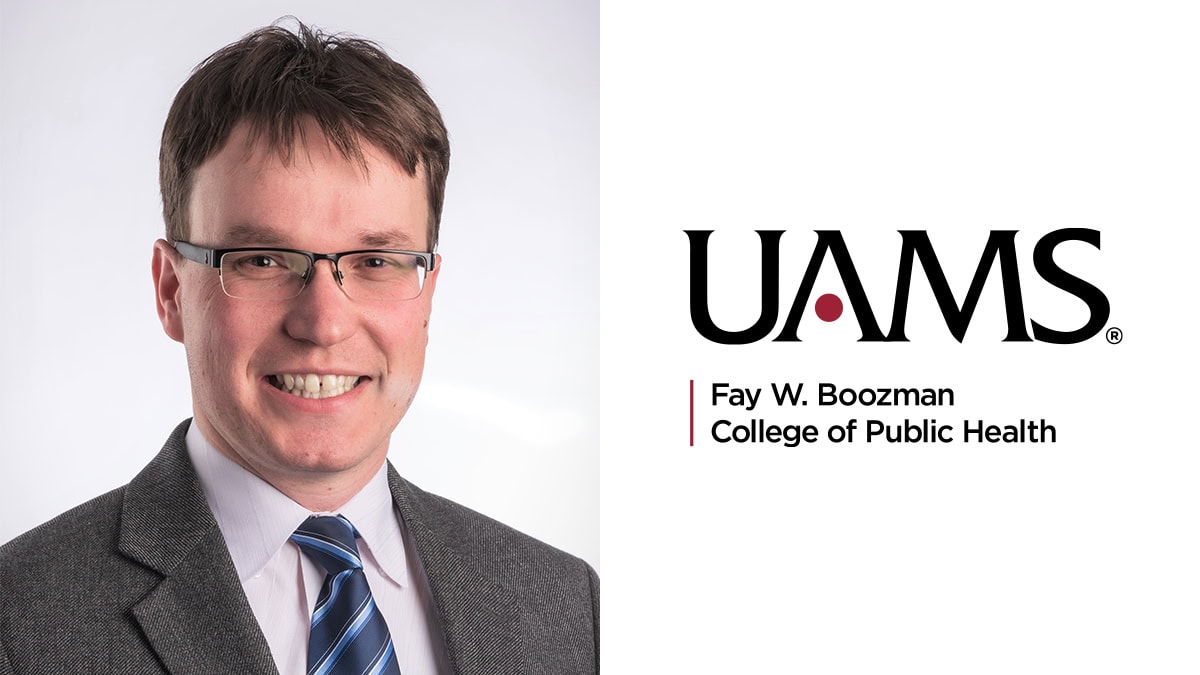UAMS Researcher to Develop Supervision Strategy for Addiction Treatment Programs
| Jure Baloh, Ph.D., MHA, assistant professor in the University of Arkansas for Medical Sciences (UAMS) Fay W. Boozman College of Public Health’s Department of Health Policy and Management, is leading a study designed to develop and pilot a supervision strategy to support management and staff of addiction treatment programs.
The three-year project launched in August. It’s funded by the National Institute on Drug Abuse for nearly $700,000. The study will provide the foundation for a large-scale test of the strategy in the future.
“We’re trying to develop a system for addiction treatment facility supervisors to help support their counselors,” Baloh said. “That way, supervisors and staff can feel empowered and have the tools to help them do their jobs well. We think this approach can also help reduce the rates of burnout. We want to solve those issues.”
Previous studies suggest that treatment facility jobs can be highly demanding with low pay and long hours. That results in low morale and staff shortages, ultimately undermining the quality of services. The level of assistance a program can provide factors heavily into a person’s ability to recover from a substance use disorder, Baloh added.
“People receiving treatment need ongoing support from an attentive workforce to lead them,” he said. “Quality services are a key component to a successful recovery.
“Therefore, this study is focusing on the counselors, not so much the treatment. We’re focused on people having access to high quality treatment, to help them recover.”
This planning study will also emphasize the need for an increase in the use of evidence-based practices that provide support for the staff and supervisors.
“We’re trying out some components to see if we can do this at different levels,” Baloh said. “We’ll survey and interview supervisors and counselors to get an idea if they like the intervention, if it’s helpful, if it’s not too burdensome. If we’re successful in doing all that, they should be better supported to provide evidence-based treatments.”
In the U.S., addiction to opioids, methamphetamines and alcohol harm almost 50 million people annually. For supervisors of substance abuse centers to properly support counselors, they need evidence-based supervision strategies. According to Baloh, it’s common for supervisors of the programs to receive limited support.
That’s a major reason why developing and refining a supervision strategy and piloting it in treatment programs is important.
“The study is a small piece in a larger picture to improving the issues that the workforce experiences, which can help ensure access to high quality treatment,” Baloh said. “This study will provide information to inform planning and design of a future study to assess the effectiveness of the new supervision strategy in a large sample of substance use disorder programs.”
Assisting programs with methods for upgrading team morale and reducing turnover is important for Arkansans.
“The individuals working in the treatment field are our neighbors, family members, church members and friends,” Baloh said. “We hope that what we learn from this study — and future studies — is that we’ll be able to show that supervision strategies can support the workforce and increase the quality of care provided.”
“If the workforce does not receive good support, they’re unlikely to do quality work,” he said. “It’s an immediate problem to address.”
The information can also help future health professionals create methods to help supervisors and staff at other types of facilities.
“If it all proves effective, perhaps it’s something we can teach in our college’s Master of Health Administration program or other leadership trainings,” he said.
